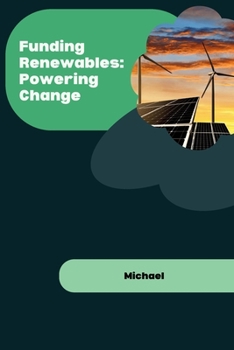Funding Renewables: Powering Change
The energy policy shaping space is influenced by the demands of sustainability goals, associated with the complexity of the socio-economic and biophysical systems. Rising fossil fuel prices, societal impacts of energy use and observed climate change make the exploration of renewable energy more important than ever (Kowalski et al., 2008). This paradigm shift, combined with the considerable amount of infrastructure and investment required for renewable energy, has led to an increasing presence of private and institutional investors including insurers, exposed to various risks. According to the US Energy Information Administration (EIA), world energy consumption will grow by 48% between the period 2012-2040 (US EIA, 2017: online). This trend is attributable to strong economic growth emerging from Non- Organisation for Economic Cooperation and Development (OECD) countries (US EIA, 2017: online), including South Africa. Working as an alternative to fossil fuels, renewable energy technologies will play an integral role in meeting the world's growing energy demand adding to the global energy mix (IRENA, 2016:14). Furthermore, the share of renewables in the global energy mix can be cost-effectively doubled by 2030 using existing technologies. Along with energy conservation practices, an overall improvement in the global energy profile can be achieved which would significantly reduce greenhouse gas emissions and put the world on track to limit global mean temperature rise to below 2 Celsius (IRENA, 2016:14). This level of renewable energy deployment means scaling up current investment in renewables to 500 billion US dollars (USD) per year by 2020. Global investment must then reach USD 900 billion each year up to 2030 (IRENA, 2016:14). Almost two-thirds of this investment would be in the power sector, but renewables for heat and transport also need to grow significantly. Developing markets with fast growing energy demand will require the largest increase in investment (IREN
Format:Paperback
Language:English
ISBN:3384225457
ISBN13:9783384225450
Release Date:May 2024
Publisher:Tredition Gmbh
Length:110 Pages
Weight:0.38 lbs.
Dimensions:0.3" x 6.0" x 9.0"
Customer Reviews
0 rating





